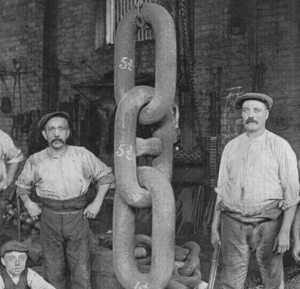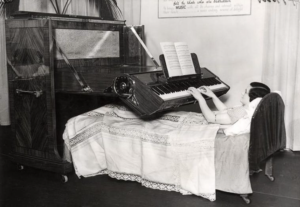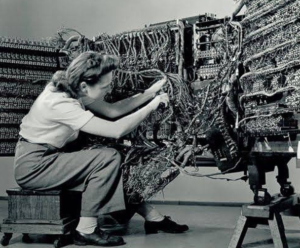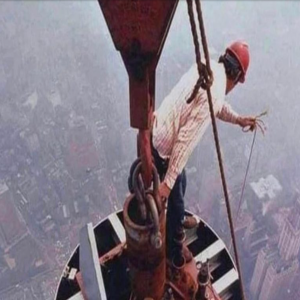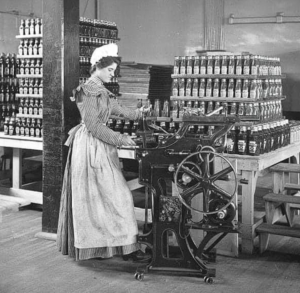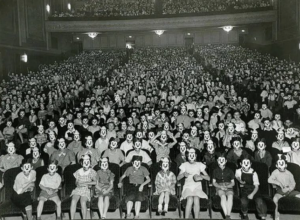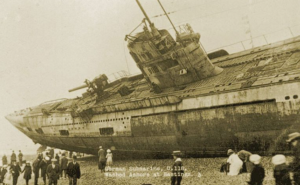No one can foresee the future, but by reflecting on history, we can gain a deeper understanding of the present.
Here are 100 essential historical moments—pivotal events that have shaped the world as we know it. From wars and revolutions to groundbreaking scientific discoveries and technological advancements, these moments mark key milestones in human progress.
Whether you’re a history enthusiast or simply curious about the past, this list is a must-see!
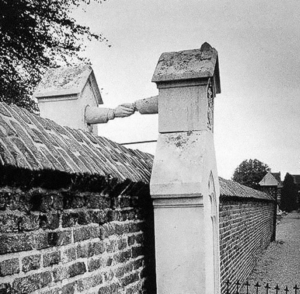
A Protestant husband and his Catholic wife were not permitted to be buried together. Here are their headstones reaching across the two cemeteries in 1888.
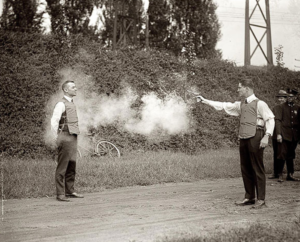
A demonstration of how bulletproof vests work, 1923.
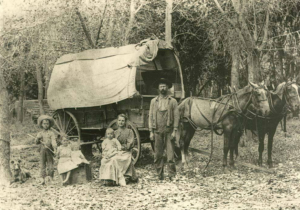
In 1908, a family stands proudly beside their covered wagon on the open plains of Kansas, capturing a moment in time that reflects both resilience and adventure. Dressed in their best attire, they gaze into the camera with expressions of determination and hope, their wagon—a symbol of frontier life—laden with supplies for the journey ahead. The vast prairie stretches behind them, a testament to the boundless opportunities and challenges that defined the early 20th-century American heartland.

In 1876, amidst the bustling workshops of Paris, skilled craftsmen and engineers meticulously constructed the colossal hand and torch of the Statue of Liberty, a symbol of freedom destined for the United States. Sparks flew and hammers rang as artisans shaped the copper sheets, carefully assembling each intricate detail under the guidance of renowned sculptor Frédéric Auguste Bartholdi. Towering over the workshop, the massive hand, with its elegantly sculpted fingers, firmly grasped the torch, which would one day illuminate New York Harbor. This monumental project, a gift from France to America, was a testament to artistry, engineering, and the enduring friendship between the two nations.
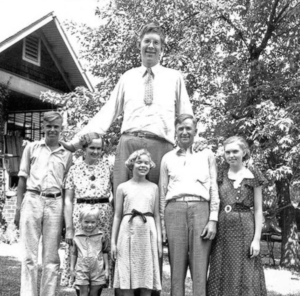
In 1935, Robert Wadlow, the tallest man to ever live, stood alongside his family for a remarkable portrait, his towering frame dwarfing those around him. At just 17 years old, he had already surpassed eight feet in height, his extraordinary stature the result of a rare medical condition known as gigantism. Despite his immense size, Robert remained gentle and soft-spoken, endearing himself to those who met him. In the photograph, his parents and siblings stand close, their expressions a mixture of pride and affection, highlighting the deep bond they shared. This moment captured not only the uniqueness of Robert’s life but also the love and support of his family as he navigated a world not built for someone of his extraordinary height.
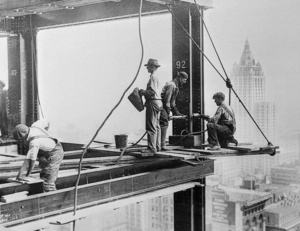
In the early 1930s, high above the bustling streets of New York City, fearless workers toiled tirelessly to construct the iconic Empire State Building. Balancing on steel beams hundreds of feet in the air, they riveted, welded, and assembled the towering skyscraper that would soon become a symbol of American ambition and ingenuity. With no harnesses or modern safety equipment, these laborers braved dizzying heights and harsh conditions, driven by the promise of progress during the depths of the Great Depression. Their determination and skill transformed architectural vision into reality, forever changing the New York skyline.
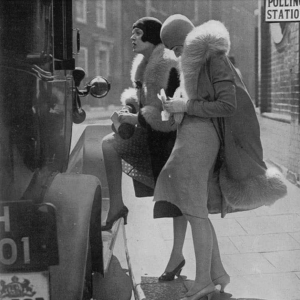
In London, 1929, two women stood side by side just moments after casting their votes, their expressions reflecting a mixture of pride, empowerment, and quiet determination. It was a historic time, as this was the first general election in which women over the age of 21 were granted the same voting rights as men, marking a significant victory in the long struggle for gender equality. Dressed in the elegant yet modest fashion of the era, they clutched their coats tightly against the autumn chill, their gloved hands perhaps still tingling with the excitement of participating in a democratic process that had long been denied to them. As they stepped away from the polling station, they carried with them not just their ballots but also the hopes and aspirations of generations of women who had fought for this very moment.
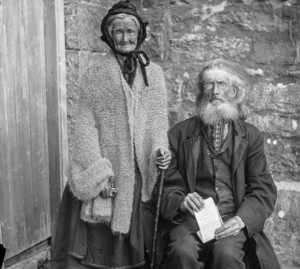
In Ireland, 1890, a mother and her young son stood together for a formal portrait, capturing a moment in time that spoke of love, resilience, and the quiet strength of family. Dressed in the modest yet dignified clothing of the era, the mother gazed solemnly into the camera, her expression a mixture of tenderness and determination, while her son, standing close beside her, looked on with a youthful curiosity. The sepia tones of the photograph would, over time, become a cherished keepsake, preserving the unspoken bond between them. In an Ireland shaped by both hardship and hope, this image reflected not just a family’s story but the enduring spirit of an entire generation.
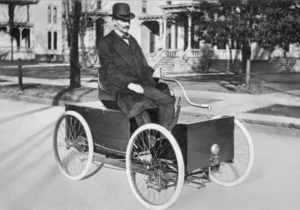
In 1896, Henry Ford sat proudly at the controls of the very first car he ever built, a self-propelled machine that would mark the beginning of a revolution in transportation. Known as the Quadricycle, this lightweight vehicle, with its bicycle-like wheels and simple gasoline engine, was a far cry from the mass-produced automobiles that would later bear his name. Navigating the quiet streets of Detroit, Ford tested his creation with a mixture of excitement and determination, unaware that this humble machine would lay the foundation for an industry that would change the world. This moment, frozen in time, symbolized not just the birth of an automobile but the dawn of a new era in mobility and innovation.

